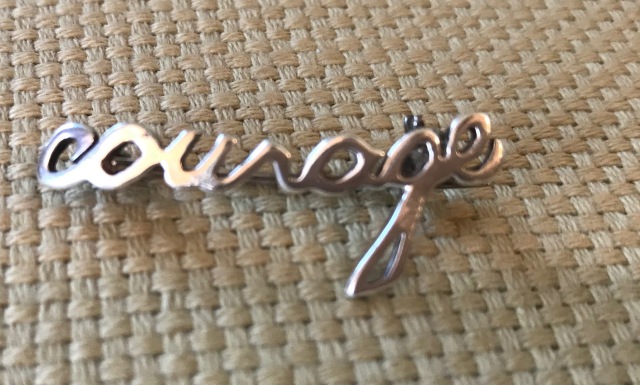
November 2018; ringing the gong to mark the end of my radiation treatment. The team were a
kind and supportive community. Grateful!
By Caitlin Kelly
I recently came across two examples of individuals who have created a community — not religious or political — and it reminded me how much we need to find common ground with others.
I am always moved, especially living in the U.S., where it’s always about the individual and their needs/wishes, that someone simply steps up and creates something new of potential value to others. It takes guts.
It’s leadership!
I’ve never been much of a joiner and have had some dissatisfying experiences with trying to fit into a community where I just don’t feel much sense of emotional or intellectual connection. I’ve lived for decades in a 100-apartment co-op (owned) suburban New York building. The people who move in, overwhelmingly, have owned big houses, sold them for plenty of money and downsize here. Or they are teachers, professors, civil servants with good pensions. Many are perfectly pleasant people, luckily, but I’ve found very few to talk to at length. Maybe I’m just a terrible snob! One next door neighbor is a college professor who specializes in social housing; we’ve chatted — and his now 15-year-old daughter who plays hockey and softball, athletic pursuits I know and love.
I tried, once, attending the building’s book club. Disaster. Almost no one spoke, and the books they keep choosing are not my cup of tea.
A local church, whose pastor I like a lot and whose building is gorgeous (1853) has been difficult — many are corporate warriors, high earners, and we are not. So I attend occasionally.
One woman who belongs to an online writers’ group I’m in has created a biweekly money chat. We meet by Zoom and talk freely about anything financial we’re thinking about. I find it encouraging, motivating and helpful as we share tips for saving, earning (more), investing and other business issues we all face.
A woman on Twitter in Vermont created a Spanish conversation group that’s been meeting for years. I love this!
I’ve been part of a co-ed softball team for more than 20 years. I absolutely treasure the long, deep, ongoing friendships Jose and I have made there. It began simply enough — someone thought to create it and let people know and…we loved it and keep coming. What a great gift!
Showing up consistently keeps community alive.
I guess it’s obvious — but if you’ve lived a less conventional life, as I have (no kids, living in 5 countries, lots of foreign travel, speaking 2 foreign languages) — it’s just de facto going to place you in a minority. If I lived in Europe, on the continent, I’d be an uneducated minority for only speaking three languages!
People with whom I always find the most in common:
- well educated (not formal education, per se, but self taught, perpetually curious)
- well traveled (not wealthy, but who have made travel, domestic or global, a priority whenever possible)
- well read (catholic tastes, in the small c sense of the word)
- deeply curious!
- open-hearted and generous with their time and skills; probably mentoring
- some talent they enjoy: cooking, knitting, music, gardening, anything!
- not dogmatically religious/evangelizing/conservative
- not politically rigid, misogynistic and racist
- fun! They have a sense of play, of joy, of humor
- resilient. We all face tough times; those able to surmount them, not whine endlessly “it’s not fair!”
- have often lived far from their birthplace, for work, education or adventure; i.e. are culturally/globally aware.
Finding kindred spirits is so comforting!
Here’s my recent essay about finding some, finally, at a local conversation group.
An excerpt:
French may have initially brought us together, but growing affection binds us deeper each week.
An Easygoing Camaraderie
We’re originally from Israel, Canada, Ukraine, Chile, Peru and Germany. As a Canadian who studied French from grade school through four years of university, and who worked in it as a journalist in Quebec and France, I arrived with an advantage. The four of us most fluent can tend to dominate, but there’s also much “comment dit-on?” (how do you say?) as we all hastily refer to our phones or dictionary to translate.
There’s a lovely and easygoing camaraderie, no one embarrassed to make a mistake, no one taking offense as others, kindly, offer corrections. In an era of widespread loneliness, our amitié is deeply comforting.
Where have you found ongoing and welcoming community?













